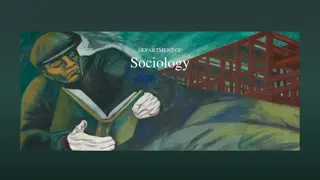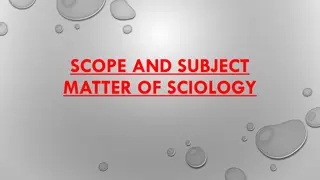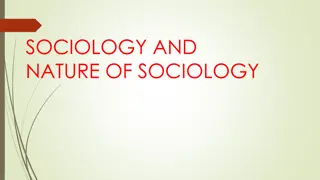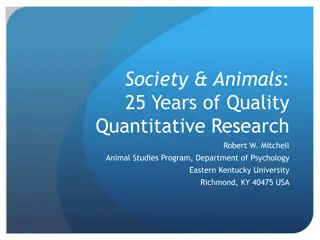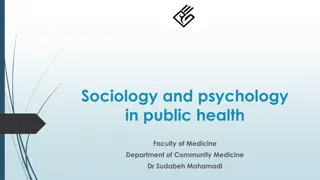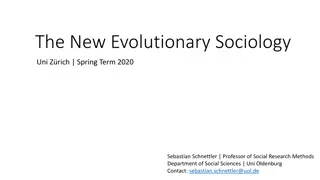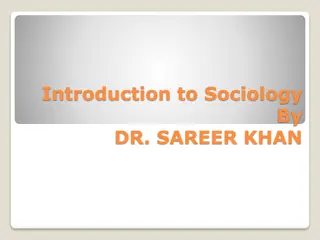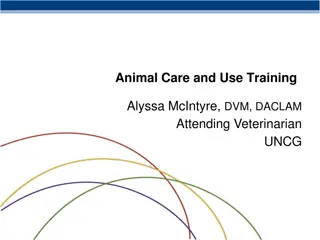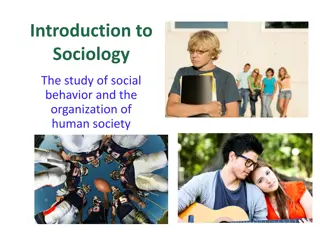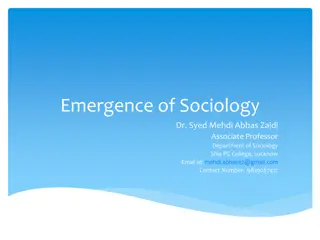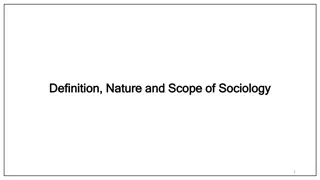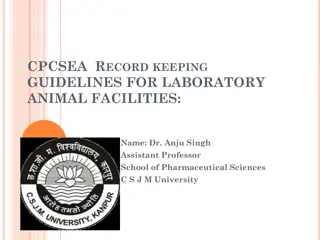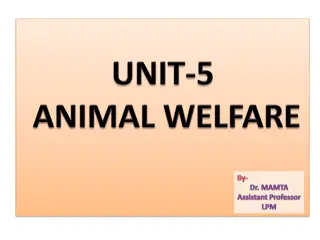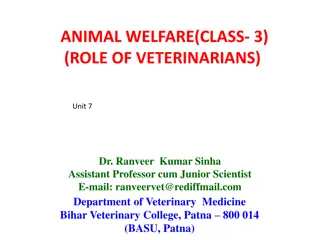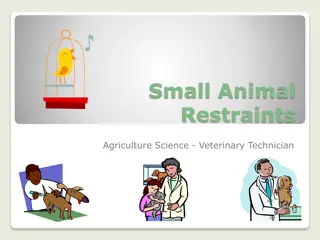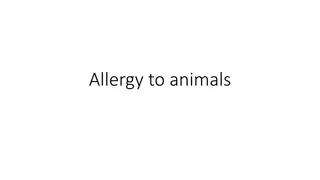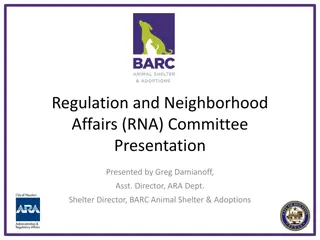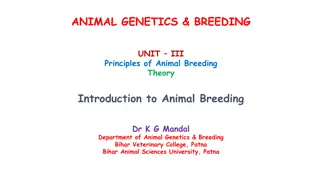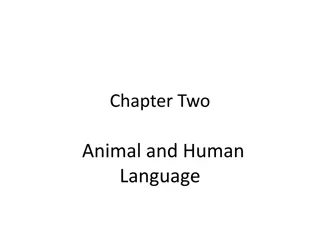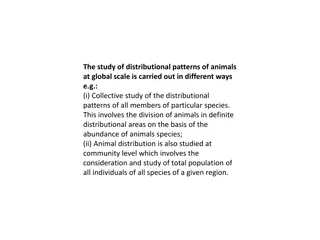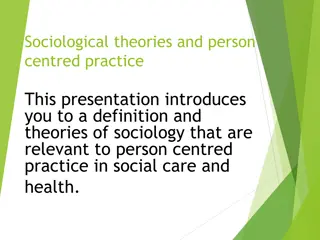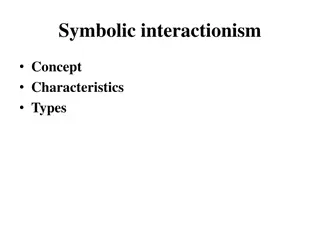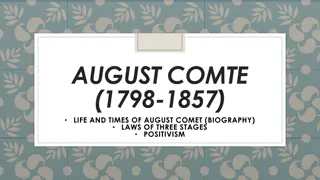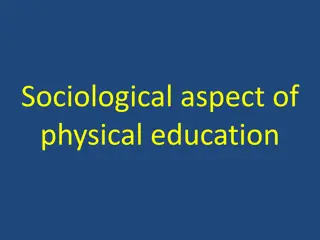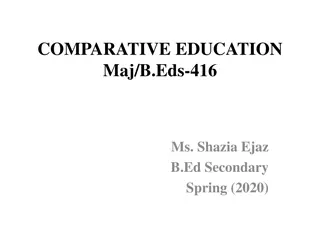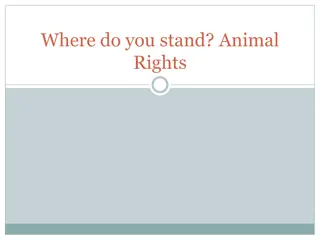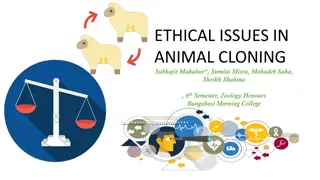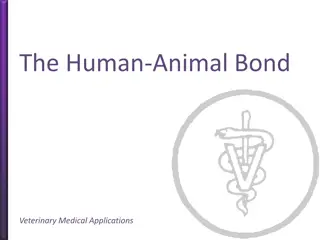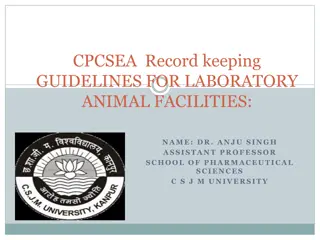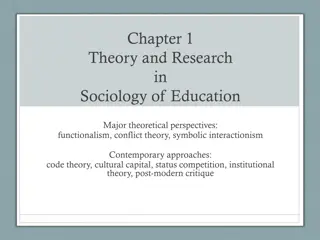Exploring Animal Management and Sociology in Education
Discover the intersection of animal management and sociology in education through a comprehensive course structure that covers topics ranging from animal welfare and ethics to practical husbandry. Dive into the significance of animal care in the UK economy and learn about various career paths in this rewarding field. Gain insights into coursework assessments, examination expectations, and transferable skills to excel in this fascinating domain.
Download Presentation

Please find below an Image/Link to download the presentation.
The content on the website is provided AS IS for your information and personal use only. It may not be sold, licensed, or shared on other websites without obtaining consent from the author. Download presentation by click this link. If you encounter any issues during the download, it is possible that the publisher has removed the file from their server.
E N D
Presentation Transcript
Induction 2021
In your groups, make up a definition of Sociology. What is ANIMAL MANAGEMENT?
Animal Management and Care is worth 1 billion to the UK economy it only increases. There are 20,000 businesses, 78,000 employees and many volunteers. It offers hundreds of different career paths from animal husbandry to conservation to ethical educators Sociology The science of society
What are we going to cover? Unit 3: Animal Welfare and Ethics Unit 4: Practical Animal Husbandry Unit 5: Animal Behaviour Unit 6: Animal Health and Diseases Unit 7: Work Experience in the Animal Sector Today you will do 4 activities to get an ideas of some of what we do in Units 3 - 6.
Course Structure Unit Unit title Assessment Guided Learning Hours 3 Animal Welfare and Ethics External set task 120 4 Practical Animal Husbandry Internal coursework 60 5 Animal Behaviour Internal coursework 60 6 Animal Health and Diseases Internal coursework 60 7 Work Experience in Animal Sector (minimum 75 hours) Internal coursework 60
Unit 3 is the only unit that is examined, the rest is coursework that is internally marked. You have a supervised 3 hours to create notes about a set task (an animal care facility scenario) which you then TAKE INTO THE EXAM. The exam is 3 hours.
Expectations Arriving prepared for the lesson 5 hours of work per subject per week Completing homework Additional reading articles Acting on feedback (choosing to re-write work that have generated low marks) Revision Unit 3 is examined Taking an interest in what is going on in the animal sector
Transferable skills from KS4/GCSE Research and Analysis Effective writing Revision skills Presentation
Activity 1: Animal Welfare and Ethics Debate - Should Zoos exist? Should we be caging animals for our entertainment? Do they really contribute to conservation? Do they serve another purpose? Go to: https://padlet.com/ehuddle/should_zoos_exist Type your reasons for Yes and No
Some things to consider What do zoos do with all the animals they over breed? What do they do if an animal escapes? Can captive bred animals survive release into the wild? Do they teach us respect for animals?
Activity 2: Practical Animal Husbandry Animal Husbandry includes the preparation of accommodation to meet animal welfare needs. This includes creating boredom busting toys and feeders. Normally during induction you would be making animal enrichment feeders for the guinea pigs, degus and rabbits and then observing the animals use them. Instead you are going to research enrichment feeders for some of our other animals Goats, Sheep, Chickens, Ducks and Tortoises. We will make these using your ideas when we start the course in September https://padlet.com/ehuddle/enrichment_ideas Post your enrichment ideas here
Activity 3: Animal Behaviour We will watch a compilation of zoo animals carrying out behaviours. Describe and explain the abnormal behaviours you have observed. What advice would you offer the zoo to reduce these behaviours? Behaviour compilation animals https://www.youtube.com/watch?v=Jhmv8Ya5jZE Zoochosis abnormal behaviours seen in zoo Stereotyped movements (or stereotypy) is a term used to describe physical movements that are both aimless and repetitive. https://padlet.com/ehuddle/abnormal_animal_behaviour Type your ideas here
Summer Assignment Imagine you are a zookeeper at ZSL London Zoo (Zoological Society London) Choose either task: 1) Animal Behaviour study carry out a behaviour study of an animal of your choice. Look at the following slides to help you carry this out. 2) Animal Conservation study - choose an endangered species to research and put forward a funding proposal to suggest how to save it. Use the prompts on the later slides to help you. Your summer assignment will be handed in at the start of the course in September
2) Animal Conservation Study


